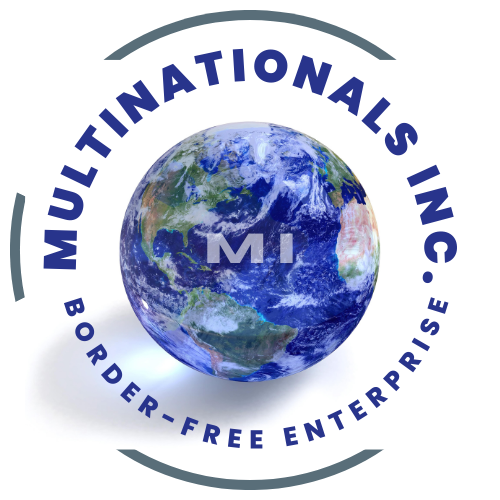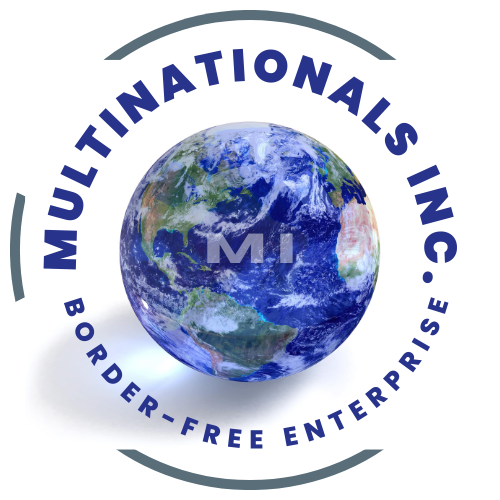Enter the Canadian Market via the ICT
The IntraCompany Transferee Visa:
Will it Work for Your Team?

Are you interested expanding your company into North America via Canada? If so, the Intracompany Transferee (ICT) program might be the perfect solution for you.
In this comprehensive article, we will focus on how the ICT can benefit companies entering the North American market for the first time.
What is the ICT Program?
The IntraCompany Transferee work permit is part of Canada's International Mobility Program. It is designed to attract established companies from around the world. Through the ICT pathway, senior managers, executives and specialized knowledge workers receive work permits for up to two years initially. Moreover, with the right planning, those work permits may lead to Permanent Resident status.
Benefits of the ICT Program
Some of the key advantages of the ICT work permit include the following:
- Live and Work in Canada: As an ICT Transferee, you and your family can live and work in Canada, enjoying all the benefits of Canadian residency.
- Access to Canadian and US Markets: Establishing a Canadian presence opens up opportunities to tap into both the Canadian and US markets, providing a wider customer base for your corporation.
- No Language Proficiency Test: Unlike some other immigration programs, the ICT program does not require you to pass language proficiency tests like the IELTS.
- Opportunity for Permanent Residency: After living in Canada for three years, you might be eligible to apply for Canadian Permanent Residency through the Express Entry program.
- Education for Children: Your children can attend Canadian public schools, receiving a high-quality education in a multicultural environment.
Eligibility Criteria
To qualify for the ICT program, you must meet specific requirements. They include the following:
Establish a Relationship with a Canadian Company: You must establish a relationship between your foreign venture and the new or existing Canadian company. This can be done through a parent, subsidiary, or affiliate relationship.
Investment Available: Applicants must demonstrate that they have the necessary investment capital to cover the first year's operational costs. The minimum investment required typically starts from $200,000 and up.
Physical Address: Your corporation must have a physical address in Canada, indicating a genuine presence in the country.
Business Entity: MultiNationals can prepare the registration of your Canadian business entity, such as a corporation or partnership.
Business Plan: An articulate business plan outlining your proposed business activities, market research, and financial projections is essential to proove the viability of your enterprise in Canada.
Significant Benefit to the Canadian Economy and/or Culture: Your Plan should illustrate how your company will benefit Canada with respect our our economy and/or society through job creation, innovation, cultural edification or other means.
Capability to Manage the Business: You must show prior business experience and possess the necessary skills and knowledge to successfully manage your company in Canada.
Majority Ownership: Visa Applicants must have majority ownership in the Canadian company, further establishing their control and commitment to its success.
No Inadmissibility Issues: Ensure that you do not have any inadmissibility issues that could hinder your eligibility for the ICT program.
Application Process
Now that you understand the eligibility criteria, let's walk through the application process for the ICT Category:
Step One: Incorporate in Canada. You must create a parent, subsidiary, or affiliate relationship.
Step Two: Develop a Comprehensive Business Plan. Design a detailed business plan that outlines your proposed business activities, market research, financial projections, and the overall viability of your start-up in Canada.
Step Three: Gather the Required Documents. Collect all the necessary documents, such as bank statements, articles of incorporation, evidence of investment funds, and other supporting materials to strengthen your application.
Step Four: Submit Your Work Permit Application. Prepare and submit your work permit application to the relevant Canadian immigration authority, typically Immigration, Refugees and Citizenship Canada.
Step Five: Wait for the Decision. After submitting your application, patiently wait for the decision on your work permit application. Processing times may vary depending on the office handling your application and your country of origin.
Step Six: Establish Your Start-Up. Once your work permit is approved, you can proceed to establish your start-up in Canada and commence your business activities.
It's important to note that the process may differ depending on your nationality and specific circumstances. Some countries have agreements with Canada that facilitate the ICT application process, while others may require additional steps or documentation.
Investment Requirements for Start-Up Companies
While the ICT program does not have a set minimum investment amount, it is crucial to demonstrate that your start-up has the financial capacity to support its operations in Canada. In our experience, start-up companies should aim to have solid gross sales exceeding $250,000 CAD per year and access to liquid funds of at least $100,000 CAD to cover the initial operational costs. Additionally, having access to additional funds or assets to support the business in case it does not reach self-sufficiency by the end of the first year is advisable.
Duration of the ICT Work Permit
ICT work permits are typically issued for a duration of 1 to 2 years. However, start-up companies may receive a 1-year work permit if they are in the initial stages of establishing their operations in Canada. Special provisions may apply to nationals of visa-exempt countries, such as the United States, who may be eligible for a 3-year work permit under Free Trade Agreements.
It's important to note that work permits can be renewed for additional periods, allowing for a maximum total duration of 5 years for specialized knowledge workers and 7 years for executives and managers.
Transitioning from ICT to Permanent Residency
One of the significant advantages of the ICT program is the potential pathway to Canadian Permanent Residency. After working full-time for the Canadian company for at least one year, you may become eligible to apply for Permanent Residency through the Express Entry program. Depending on your employment role, you may receive additional points for an arranged employment (job offer) from your own business in Canada. This can significantly increase your Comprehensive Ranking System (CRS) score, increasing your chances of selection under the Federal Skilled Worker category of the Express Entry stream and receiving an invitation to apply for Permanent Residency.
International Free Trade Agreements and ICT
Several countries have international agreements with Canada that provide special benefits under the ICT program. Nationals of these countries can utilize Treaty ICT regulations, streamlining the application process. The countries benefiting from these agreements include the United States (CUSMA), Mexico (CUSMA), Chile, Colombia, Peru, Korea, European Union (CETA), Australia (CPTPP), Japan (CPTPP), Mexico (CPTPP), and New Zealand (CPTPP).
Frequently Asked Questions About the ICT
How long is the ICT work permit valid for?
- ICT work permits are typically issued for 1 to 2 years, with the possibility of renewal for additional periods.
Can I apply for Permanent Residency through the ICT program?
- After working for the Canadian company for at least one year, you may become eligible to apply for Permanent Residency through the Express Entry program.
Do international free trade agreements provide any benefits for ICT start-up applicants?
- Yes, nationals of countries with international free trade agreements with Canada can utilize Treaty ICT regulations, offering streamlined benefits for their applications.
Conclusion
Expanding your start-up business to Canada through the IntraCompany Transferee (ICT) program presents an exciting opportunity for growth and success. By meeting the eligibility criteria, developing a comprehensive business plan, and navigating the application process, you can establish your start-up in Canada and enjoy the benefits of living and working in a thriving business environment. With proper legal counsel and strategy execution, your start-up can flourish on Canadian soil.

Click Here To Book Your Consultation
Take your first step:
GET eASSESSSED.
Already Our Client?
LOGIN TO YOUR CLIENT PORTAL HERE.
MultiNationals Blog



